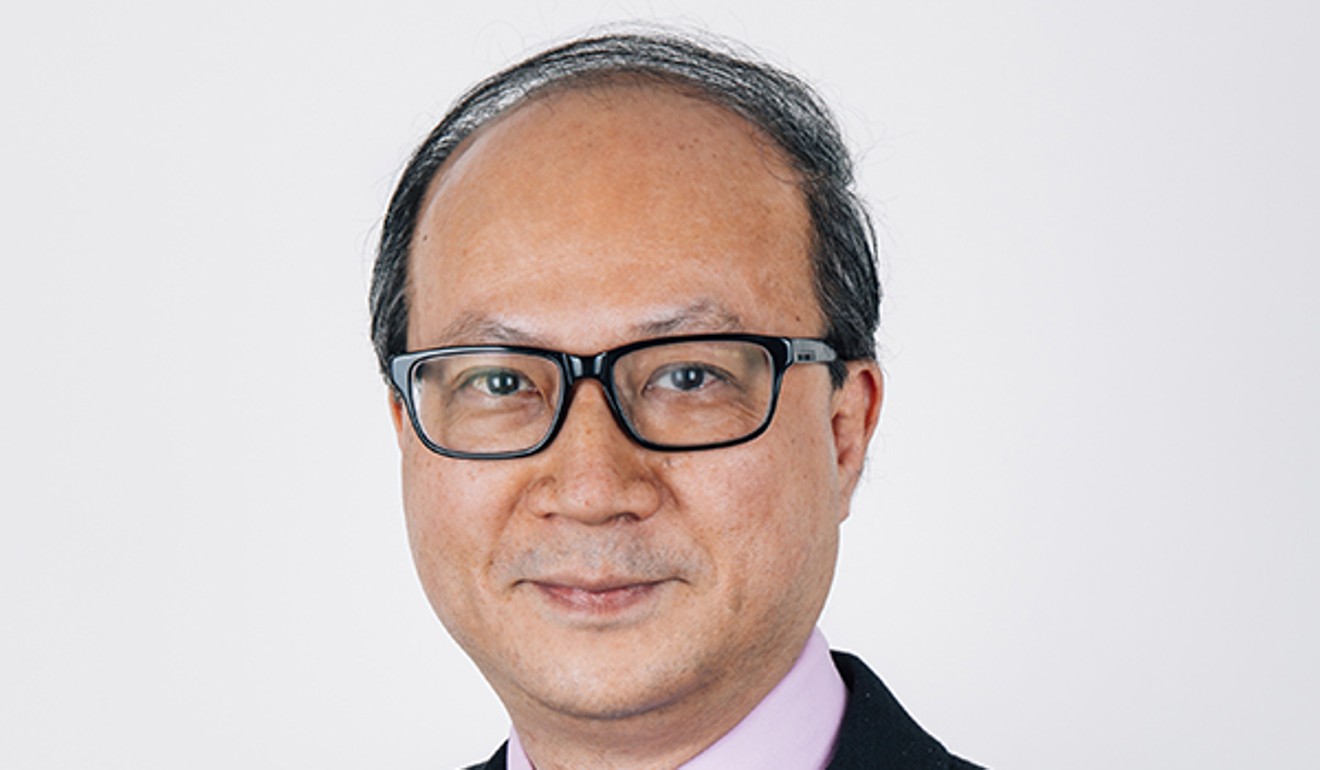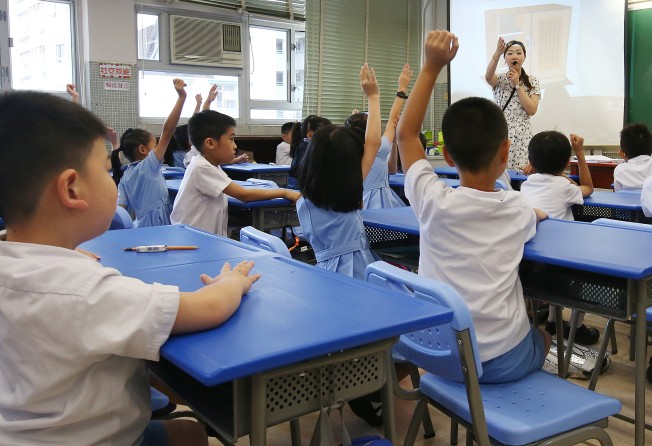
Spearheading an inclusive approach to special needs
- The growing demand in Hong Kong for special-education experts and teachers drives the supply of comprehensive courses in the higher education sector

For educators, social workers or those who want to provide much-needed education and counselling support to tens of thousands of pupils with special education needs (SEN), there is a range of professional education courses available at universities and education institutions.
According to the Audit Commission, there were 42,890 students with Special Educational Needs (SEN) studying in the 844 local mainstream schools in the 2016/2017 academic year.
There were 330 out of 844 publicly funded mainstream primary and secondary schools receiving regular educational psychology services provided by the Education Bureau. Among these, 27 received fewer than the required 18 visits a year, with one school receiving just 10. Another 484 schools received services from school-sponsoring bodies, but 11 of these schools received fewer than the required 14 visits, with one school receiving just four.
Dr Sarah Luk, from the department of educational psychology at the Chinese University of Hong Kong (CUHK), says the figures spoke volumes of the training needs of current students, special education needs co-ordinators, school guidance teachers and school social workers in SEN counselling and intervention strategies on the individual, group, school and family levels.
Luk is the key teacher of the special needs stream of the master of arts degree programme in school guidance and counselling (MASGC), which provides specialised training for teachers, social workers, youth workers and those in the helping professions.
The two-year part-time programme covers counselling theories, counselling skills for diverse settings such as schools, social service agencies, agencies and tertiary institutions, as well as practicum where students gain supervised field experience. It also covers educational research methodology.
Students may choose to specialise in counselling, comprehensive guidance for the development of pupils, and SEN. The SEN stream trains students in devising counselling and intervention strategies for nine types of SEN including specific learning difficulties, attention deficit/hyperactivity disorder, autism spectrum disorders, speech and language impairment, intellectual disability, hearing impairment, physical disability, visual impairment and mental illness.
“The master’s programme is specifically designed for counselling and frontline teachers, special needs coordinators in schools, social workers, speech therapists, practising counsellors or those who aspire to join the profession,” says Luk. “It is also suitable for other educational and helping professionals who want to develop knowledge and skills in working with children and youths with diverse needs.”
The programme teaching staff include clinical, counselling and educational psychologists trained locally and overseas, while overseas experts are invited from time to time for solution-focused and cross-cultural counselling. The programme also enjoys cross-faculty collaboration opportunities, such as the recent research project on robot-based intervention for children with autism spectrum disorders, involving the faculties of engineering, arts and medicine, and the department of education psychology, which runs the master’s programme providing plenty of research opportunities for students.
Thomas Fung, then a secondary school teacher with 10 years’ experience when enrolling in the master’s programme in 2016 to specialise in SEN, is extending his studies for a year to complete a research project on how to make child development more enjoyable. Students can apply to extend their studies, and are given a maximum of four years to complete the master’s degree programme.
While the course enabled him to better understand what SEN students face, and to use a multisensory approach in teaching when catering to learning differences at school, Fung also found that the course opened up new career possibilities. Because of the course, he was able to provide counselling to both adults and children, making him curious about child-centred play therapy. “I have been studying play therapy with my wife,” Fung says. “We intend to offer professional play therapy to children in the city, and conduct academic research on play therapy and child development.”
In early 2018, Fung was offered a new job as assistant education officer (administration) in the Education Bureau, which he gladly accepted. “I hope to be able to offer professional school support relevant to career development and special education one day,” he says, recalling how he had followed a counselling case where he supported a visually impaired Grade 11 student in finding out his personal interests and dreams, and successfully referred him to the most suitable career facilitation services. “It is an inspiring experience … I feel blessed,” he says.
In-service teachers who want to get practical help with classroom strategies may also look into the professional development programme for teachers (catering for diverse learning needs) provided by the Education University of Hong Kong (EdUHK), a part-time programme which is free of charge. Students may choose to complete 39 hours of course work within three months for basic-level certification, or 117 hours of coursework within academic work to quality for the advanced level.

Programme leader Dr Lai Chi-leung, who is a senior lecturer in the department of special education and counselling, says the course aims to equip teachers with the right knowledge, skills and attitude to devise effective strategies for SEN students in mainstream, inclusive or special education setting.
“Since all the students are in-service teachers, the course aims to fit their daily needs in supporting SEN students in different schools. After the study, teachers should be able to plan, implement and evaluate their school work,” says Lai. “Also, they should be aware of the Three-Tier Model in addressing students’ special needs, particularly in relation to the whole school perspective.”
Advanced-level students will be looking into specific types of special needs, and are expected to review, plan, implement and evaluate their school work in addressing students’ special needs in the context of the whole school.
Both basic and advance level coursework will count towards the special education training requirements for applying for jobs related to special education needs, such as the role of special educational needs coordinators (SENCO) set out by the Education Bureau.
Law Yuen-pui, a primary school teacher with a master’s degree in education, decided to sign up for the course at the beginning of this academic year, to better cater to SEN students in a classroom setting. She found the course practical, as she is now able to tailor classwork materials for SEN students, and assess them in a proper way.
“I am also able to give advice to my colleagues and to new teachers on how to plan their lessons for SEN students, manage the classroom and arrange activities according to their needs,” Law says. “I have become more capable at teaching in the mainstream school as more students with special needs are included in our school. The course really helps enrich my school and broaden my professional horizons.”
A case study
Fresh graduates and working adults who want to qualify to work with young SEN pupils in school settings and outside may consider the two-year higher diploma in early childhood education (HDECE) offered by Yew Chung College of Early Childhood Education.
Stressing play-based learning, the English-medium course offers significant content on children with SEN. All students have to take SEN courses and all will have practicum in special education settings. Graduates will have dual certification (from both EDB and the Social Welfare Department) and four professional licences (EDB: registered kindergarten teachers; Social Welfare Department: child care workers. child care supervisors and special child care workers). Professor Sultana Tupurkovska-Poposka, vice-president and dean of studies, says the course offers an international setting as it is taught by an international faculty recruited from all over the world and uses English as the only medium of instruction, attracting students of various ethnic backgrounds from all over the world.
The course has strong ties with the Yew Cheung Education Foundation’s network of international schools in Hong Kong and the mainland, where students visit classes and participate in experience-sharing. Graduates may also further their studies in overseas universities in an articulation agreement with the college.
As the course is approved by the Education Bureau and the Social Welfare Department, graduates can work as registered kindergarten teachers, childcare workers and supervisors and special childcare workers. Barbara Christina S. Montesclaros, a current second-year student, decided to join the programme after working as a playgroup/native English teacher for four years after graduating from high school.
“In this programme we are reminded to be humble but knowledgeable, and most of all, professional … Adapting these qualities is one of the biggest steps in preparing individuals for acquiring possible roles or roles as senior management staff in both mainstream and SEN schools,” she says.
“Those are what help broaden horizons for us, aside from just what we’re taught within the lecture rooms.”